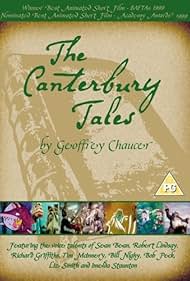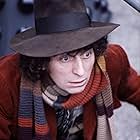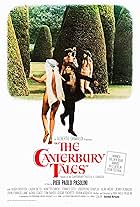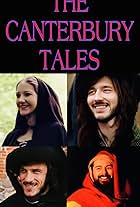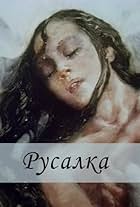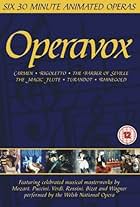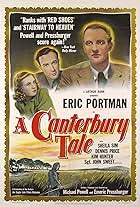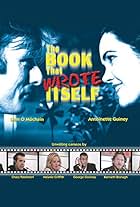The three most popular of the Canterbury Tales are those of the Miller, the Pardoner and the Wife of Bath: perhaps the makers of the series felt that they had been wrong to exclude the Miller's tale from their original two-hander (whose six tales, in various but equally beautiful animation styles, were those of the Nun's Priest, the Knight, the Merchant, the Wife of Bath, the Pardoner and the Franklin, with nods to the three unfinished tales - the Cook's, Chaucer's Tale of Sir Topas, and the Squire's: the Cook, too drunk in the original to complete his story, is here too drunk to begin it; Chaucer's doggerel is cut off by the Host as originally, but much sooner, and is not replaced with the rather boring prose Tale of Melibee; the Squire merely makes a few noises about the kind of tale he wants to hear before the Franklin tells it). So, here are four more tales: the Squire's, with an invented ending; the Canon's Yeoman's; the Miller's, and the Reeve's, told in alternating episodes.
Pluses: the evocation of fourteenth century life in the between-tales segments (and the Canon's Yeoman's Tale, which, like the Pardoner's, uses the same faux-plasticine style of animation as the "real" segments of the story) is as rich as ever; and the watercolourish animation of the Squire's tale is exquisite, possibly the most gorgeous in the series.
Minuses: the Squire's Tale rambles all over the place with no real narrative strength; the rivalry played up in the first two episodes was that between the Summoner and the Friar, not the Miller and the Reeve (indeed, I don't think the Reeve even appeared), so we haven't been prepared for their fighting and interruption; the language in their tales is excessively modern; and, worst of all, the grotesque computerised animation of these last two tales is unimaginative and ugly.
The third episode is still worth seeing, but it cannot bear comparison to the first two.
